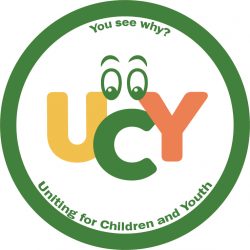Question 2 – Zone 10 Responses
Contents
-
-
- The Question in brief
- Responses from:
- Wesley Campbell
- Justin Laku
- No Responses
-
Link: See Responses to Question 2: Parts 1 – 6 for a table summary of the first 6 parts of Question 2.
The Question in Brief
There are 8 parts to this question. “Yes” or “No” answers were required for the first 6 parts, but candidates were welcome to qualify their answers. Part 7 required a prose answer, and part 8 was optional. In brief, the question asked the following. The full text of the question is found at: Question 2 – Systemic Innovation.
- Do you believe that public education needs to evolve from its industrial management practices to ones more appropriate for today? Y/N
- Do you agree that formal scheduling is a major barrier to systemic innovation? Y/N
- Would you act to establish an OCDSB Systemic Innovation Advisory Committee made up of student, parent, teacher, administrator, ministry, university professor, business and community representatives? Y/N
- If “Y” to #3, would you act to have the committee established in time for systematic field studies to begin in September 2019? Y/N
- Would you support developing a board wide inventory of innovative actions by teachers and principals? Y/N
- Would you help to create partnerships with universities that want to conduct studies of how school boards can transition from the industrial model to one that suits today’s needs? Y/N
- What is your vision of the ideal school?
Wesley Campbell
I do feel yes or no to these questions is quite narrow to the responses though.
- Y
- N
- N
- N
- Y
- N
- My vision of the ideal school would see teachers helping students tailor their education to their specific needs, this means finding courses that will actually help students transition into working life and adulthood better prepared to deal with the pressures and choices that come along with leaving the public system into the work fields of their choice. I also would like to see more outdoor activity time added to the day starting from the very first day of kindergarten and continuing until the last day of high school, I would like to see our youth with a healthier outlook on exercise and healthy life choices.
Justin Laku
- Yes, I believe that public education requires new models that provide students with best solutions that cater for student needs. For instance, students and families should be given an opportunity to choose what is best for their kids as well as what student love best.
- Yes, it is true that formal scheduling is a major barriers to systemic innovation. Technological advancement has changed the way we live and revolutionized the world we live in and the world is never the same. Therefore, it is important to get use of systemic innovation in school system and through it search for new ways that can enhance the education system and make teaching more enjoyable to students. The Systemic innovation will provide students with better learning opportunities.
- Yes, I would support and encourage establishment of OCDSB Systemic Innovation Advisory Committee made up of student, parent, teacher, administrator, ministry, university professor, business and community representatives to exchange ideas on how to integrate technology into the school system at an early age. The Advisory Committee should have clear vision, objectives and mandate.
- Yes, I would encourage the establishment of a committee in time for Systematic field studies in early September 2019.
- Yes, I would support developing a board wide inventory of innovative actions by teachers and principals that require no additional funding, that keep students in their community schools, that adhere to ministry requirements, that promise to help define a new model for education, and that can expand our vision of how ideas that research finds are working can be scaled up to benefit more students? See the Innovation Playlist for how small steps can lead to big changes.
- Yes, the concept of partnership is a great idea and way forward for collaboration with higher institutions. I would help create partnerships with universities that want to conduct studies of how school boards can transition, with a minimum of disruption and angst, from the industrial model to one that suits today’s needs.
- What is your vision of the ideal school? My vision of the ideal school is where school is a place where students find theirs interests as well as put interests of students first and protect them. Additionally, the ideal school should be an environment where students have some freedom to exploration and enjoy what they love to do with support of teachers, parents and other innovators.
Furthermore, ideal school should be a platform where school administration, engages parents, police and community members and exchange innovate ideas, discuss safety issues and police are seen as friends of community rather than trouble makers. In addition to this, ideal school should not only focus on education, but also on guidance-education without guidance produces students, but never good citizens and future servant leaders.
Finally, the ideal school should be a platform where students are provide with different learning opportunities of his/her interests and choice as well as where families and student are given decentralization power, for instance; home schooling model or any other model that works for student.
8. SUPPLEMENTARY QUESTION – Yes, as former friends of Sudan education and health project, I established partnership between Carleton, Ottawa, and St. Paul Universities in Canada and University of Juba in Sudan. I would encourage and support concept of partnership with a university faculty of education a `“Model 21st Century Teaching School” to investigate the potential of the types of learning environments being provided by Liberated Learners and the concept of a full service community learning hub as well as with Jakubonbit centre for African Studies and mentorship and any other learning centres that enhance understanding of students in many ways.
No Responses
– Erica Braunovan
– David Humphries

